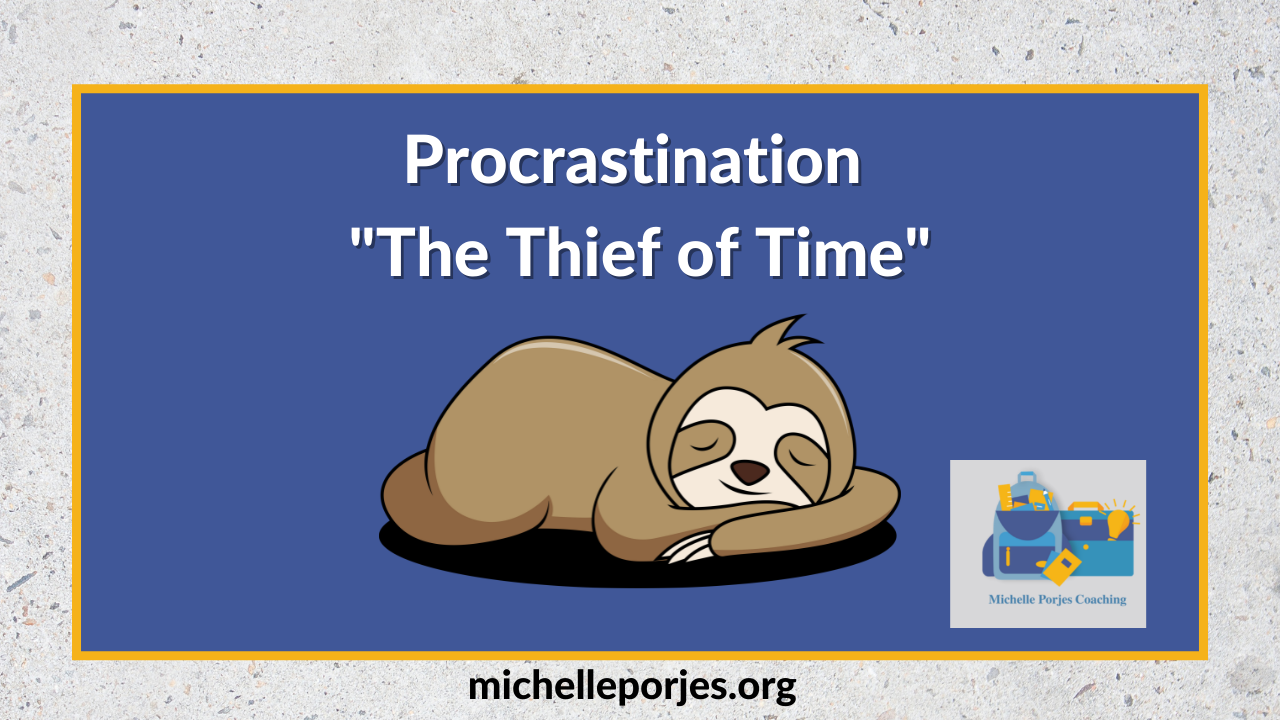Procrastination is the delay or avoidance of a task that needs to be completed. It usually involves intentional or habitual putting off something that needs to be done even if the consequences to the action are severe. In our modern day society with the multiple demands placed upon us, procrastination can negatively impact career growth, interpersonal relationships and one’s self-esteem/self-concept.
Read on to better understand the concept of procrastination, how to identify it, and how to overcome it:
What is Procrastination?
Procrastination is a self-regulation deficit and those that struggle with procrastination ultimately struggle with the process of continuously monitoring progress toward a goal, checking outcomes, and redirecting unsuccessful efforts. The goal is to increase control over one’s behavior, change one’s behavior based on what is needed or change a future consequence or goal in order to accomplish a task.
Perfectionists
Perfectionists say “it needs to be perfect”. Perfectionists hyper focus on details. They can start a task but can fail to finish the task or avoid the task completely because they worry about judgment from others. Perfectionists convince themselves that others will view them as incompetent, not trustworthy or they think that work always needs one more revision. They are motivated by avoiding performance evaluations and fear. Some will create distractions in order to avoid the task at all costs.
The most important thing for a perfectionist to do is finish a task, turn it in to whoever requested it and move on.
Dreamers
Dreamers say “I have the best idea” and reroute their energy on the spot. They often go after novel, exciting ideas and then drop the task in favor of a new novel task. This is often referred to as being a shiny object seeker because the motivation for immediate gratification is high. They can be creative, coming up with original ideas, but when it comes time to focus on the details to bring the new idea into reality, they have a tendency to move on to the next idea.
The most important thing for a dreamer is to focus on completing the task in front of them and have a system of accountability.
Delayers
Delayers say “I don’t have to start that now”, “I will be more prepared to do this later”, “it’s too late to start this today” effectively putting off tasks sometimes indefinitely . They put great emphasis on how they are feeling (tired, busy, uninspired) rather than on getting the task done.
Delayers need to have a plan and support to stick to the plan. They may need help to look at what is being avoided instead of completing the tasks.
Decision Weary Procrastinators
Decision weary procrastinators say “I need someone to help me make a schedule for every part of the day”. They have difficulty making a decision and prefer being passive in favor of someone else making decisions. Decision weary procrastinators especially have trouble when there are time constraints or time frame and engage in a lot of self-deprecation and put themselves down which furthers the procrastination.
The most important thing for a decision weary procrastinator is to actively take a look at what needs to be done and when it needs to be completed.
Arousal Procrastinators
Arousal Procrastinators say things like “I work best under pressure”. They often report needing the stress of deadlines and time constraints to motivate initiating and completing a task. Arousal procrastinators are very convincing as they rarely do not get the task done. Arousal Procrastinators rely on this and what they often have trouble seeing is how their procrastination impacts others.
Arousal Procrastinators need to begin tasks when they are given and set aside regular times to work on the task. They need to have other adrenaline-seeking activities to fill the need for the adrenaline rush.
Busy Procrastinators
Busy Procrastinators say “I am busy doing other things and I don’t have time now”. They often have many things going on at once and booked-up calendars. Busy procrastinators sometimes have trouble acknowledging procrastination since there can be so many activities or tasks being attended to. Usually, there are tasks, often non-preferred tasks, that are routinely put off, in favor of other tasks.
The most important thing for a Busy Procrastinator to do is to establish a priority system so that non-preferred tasks get addressed and completed.
Strategies for Overcoming Procrastination
Understanding that there are different types of procrastination and acknowledging the existence of procrastination are good first steps. The harder part is taking steps to hold procrastination in check. Overcoming procrastination means making commitments and sticking to them.
Fortunately, there are are strategies that can be helpful:
- Identify what needs to be done and the date that it needs to be done.
- Break down bigger goals into smaller steps and assign deadlines for each step.
- Set time each day to work on a project or step
- Identify and then control procrastination pit stops such as distraction, overscheduling, etc.
- Find an accountability partner. This is someone who you tell your commitment to so that they can check in with you to help keep you on track.
